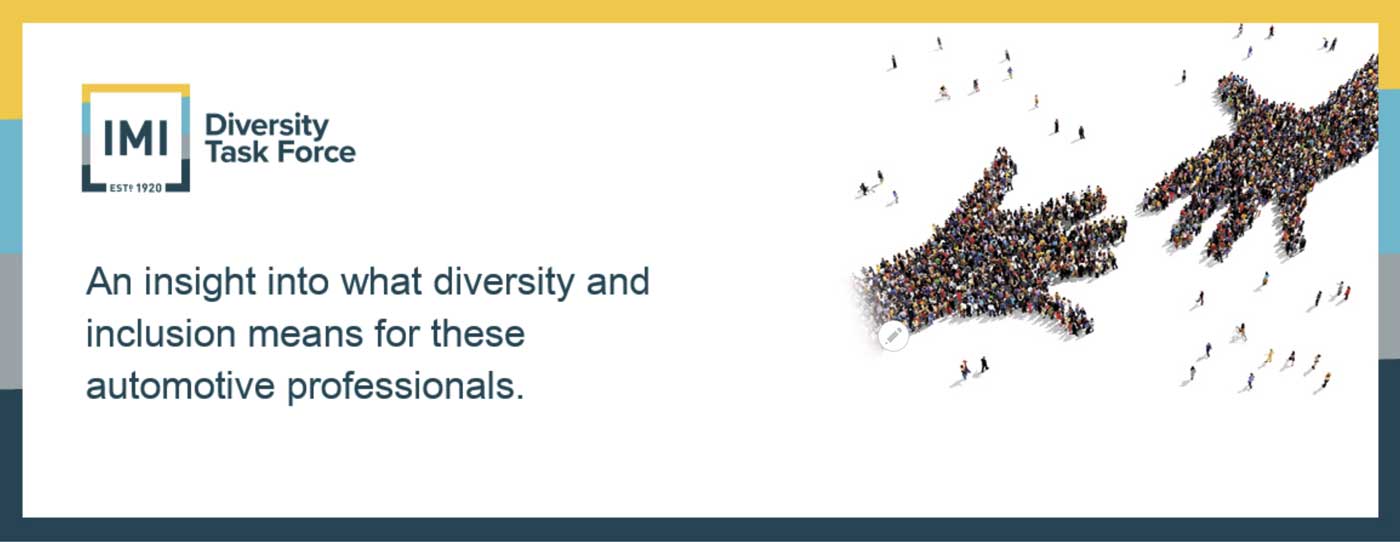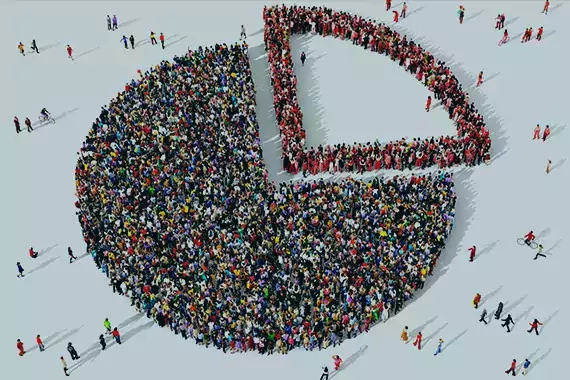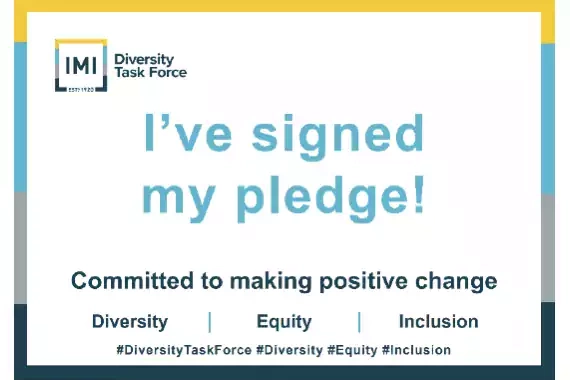Case Study: Siti Abdullah

This case study attempts to use terminology that is acceptable to under-represented groups, but we appreciate that some of what is written may be problematic. For this we apologise. As with many others, we are on a learning journey and hope that you will bear with us as we move forward together.
Name: Siti Abdullah
Job Title: UK & Ireland Key Account Manager for Brembo
My career journey
It was by accident that I found a career in automotive. I was one of those people who really didn't know what I wanted to do. I come from a background where I was supposed to do law and when that didn’t work out, I found myself working for a company called National Service Network. That’s where I first met Kevin Finn, who is the IMI’s chair. In fact, he was my first boss in the automotive world!
That was an eye opener for me. The company was one of the first garage network service providers in the UK and came about because of the Block Exemption Regulation, where they realised there was an opportunity in the market to help business save money by using independent garages for fleet work.
I was part of the bookings team, providing a vehicle booking service from fleet drivers and booking their vehicles into independent garages across the UK.
I'd come from a call centre background and one thing that was very uncomfortable for me was hearing the phones ringing. So, I made it my personal objective, in line with a call centre mentality, to pick up that phone within three rings. But the company just exploded. We were so busy. I found myself assisting the garage authorisation team as well. That was an eye-opening experience for me! I didn’t even know how to drive at the time, and I was talking to mechanics about taking their request for repairs. Trying to relay the message accurately and putting it into the IT system; I’m not going to pretend I didn’t make any mistakes, but it was all part of the learning curve! I very quickly realised that I was really intrigued by the design and workings of the vehicles and the more I immersed myself, the more my interest grew.
I'm now the Key Account Manager for UK and Ireland for Brembo and I’ve been with them for about two years. I was approached by Brembo after an IAAF event. I’d always been aware of them and really admired the brand from afar. I mean, who doesn’t?! So, by chance I had some conversations where they liked what I was doing such as the best practice seminars and they wanted to transfer some of that over to Brembo. Honestly, I couldn’t say ‘yes’ quick enough!
For me, it’s a fantastic brand. It's a global leader and technological innovator of braking systems for automotive vehicles. It designs, develops and manufactures braking systems and its components, supplying the most important manufacturers of cars, motorbikes and commercial vehicles worldwide, as well as clutches and other components for racing.
Quality is a top priority for Brembo. We wouldn’t have won more than 500 titles in motorsport if we didn’t produce a top-quality product.
How can an organisation or business encourage allyship?
I would really love to see more people like me in the sector. I certainly get ‘impostor syndrome,’ especially because of the way that my career in automotive has evolved. I did the work first and then got my qualifications. When I speak to other people like myself, they’ll say things like, “Oh my goodness, I don't know how you can do that Siti!”
As a woman in automotive you do need tenacity. I think it’s important that everyone can see people like themselves in automotive to be inspired to join. I get embarrassed by being featured in magazines or promoted but I know how important it is.
I appeared in a magazine when we were doing the AutoInform Roadshow in Ireland and I saw my picture on the front cover. I really didn’t like being on the front cover, but I know it’s important to have more visibility of different types of people doing this role.
Diversity of gender and culture is more visible in the media and on TV now and it’s important to show the next generation of people who look like me or have similar backgrounds to me that they can have a great career in automotive too.
“You can’t be it if you can’t see it,” is often used but my nervousness about putting myself out there is because I don’t conform to the ‘norm’, so there can be negativity.
I like how the brand actively takes part in projects to seek out new talent, for example. There’s lots of great stuff going on in the background. I'm always delighted that when I'm taking a factory tour there are female engineers showing us around.
Allyship is about supporting people
Throughout my career, I’ve been fortunate to have had many people support me and I’ve had some great mentors. The one that sticks in my mind is the late Steve Fisher, who was MD of Apac. He was a true gentleman. He recognised my skills and took me under his wing and helped me develop. He inspired and motivated me.
The industry is competitive and can be aggressive and despite this Steve always conducted himself in a professional and gentlemanly manner and I loved that about him. Regardless of gender, he inspired professional behaviour and proved that you can make a difference by behaving like that. Before I met him, I thought you could only get on if you behaved in the stereotypical way, but Steve showed me that wasn’t the case. It’s the way I like to carry myself. It’s how I conduct myself with my customers and colleagues. Someone else who inspires me is Hayley Pells (now Policy Manager at the IMI).
I suppose I’m inspired by people who are successful in their own right, but are a little bit different, and who are doing things the right way.
Are there any barriers to allyship?
It’s unusual to see people like me in garages. It’s even more unusual to see people like me providing technical support. There are a few of us out there but we’re still a novelty.
Most people make a judgement based on first impressions. Decades of stereotypes are ingrained in people but what I’d like to say to them is to be a bit more open and certainly more tolerant. Rather than jumping to conclusions, at least have a conversation with the person rather than letting their physical appearance dictate what you think of them or what they’re capable of.
In the technical field, there are so very few females, and we all specialise in different fields so there’s a sense of camaraderie between us. We lean on each other for advice. In a technical role, my knowledge and experience are constantly tested and challenged. It’s like having to prove yourself all the time. So, it’s really important to have good support around you.
Three steps that employers could take to create a true sense of belonging in the work environment?
- If I could help change anything it would be the first impression stereotypes. I always want to apply my knowledge to assist someone and just want people to set their assumptions aside. I can’t tell you how much time I waste trying to convince some people that I know what I’m doing when I’m just there to help! Also, there's a lot of anxiety for people like me to join the industry. When I talk to some of my friends about the things I see and hear they’ll ask me how I cope with it all. But if I can help give women who are interested in joining the industry the benefit of my experience and ways to deal with situations then that would be awesome.
- Appreciate different perspectives. It’s important to have different points of view. I’d like to show people how great it can be when you work together. I think it’s an important story to tell.
- Offer mentoring and establish networking or other support systems. I’ve found that people are willing to be mentors and that other women in the sector support each other. It’s like a close-knit family. We all understand what the challenges are, but we work to build each other up because of the experiences we’ve had.
Change isn’t going to happen overnight. There have been many times when I've been upset by a situation. But I’m resilient and can move on. I’ve learned to treat negativity as character development and remember that other peoples’ comments aren’t a reflection on me, they’re a reflection on them.




